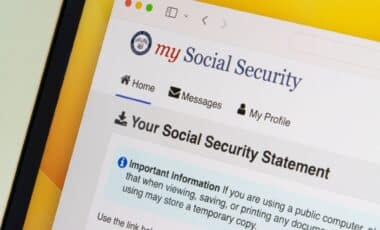A notable mistake made by HMRC has led to the notification of individuals, women regarding owed funds resulting from inaccuracies, in state pension calculations.
Who Is Impacted by the State Pension Error?
The issue predominantly affects women in their 60s and 70s who applied for Child Benefit between 1978 and 2000. During that timeframe, many individuals did not have their National Insurance (NI) credits transferred accurately.
These funds are used to establish the right to a state pension during periods of unemployment. Prior to 2010 these credits were referred to as Home Responsibilities Protection (HRP).
What Does HRP Entail?
HRP was introduced to reduce the number of qualifying years to claim the state pension, specifically benefiting parents and caregivers. It was commonly utilized by mothers who stayed at home or individuals who took breaks from employment to look after children or individuals, with long term disabilities or illnesses.
However, if an individual claimed Child Benefit without providing their NI number on the form, their HRP credits may not have been correctly transferred to their NI record. Any omission of this kind may have a significant impact on the amount of the state pension to which they are entitled.
It is estimated that 210,000 people have been impacted by this error. Regrettably, out of these affected individuals, around 60,000 have passed away; nevertheless their families are eligible to claim the funds.
On average, the compensation received from this rectification amounts to, around £5,000. However, there have been instances where individuals have successfully claimed tens of thousands of pounds.
To illustrate a woman once informed Martin Lewis, the founder of MoneySavingExpert.com that she managed to retrieve a sum of £82,000 that significantly impacted her life.
A Department for Work and Pensions (DWP) spokesperson said: “The action we are taking now will correct the historic underpayments made by successive governments.”
“We are fully committed to correcting these errors, which were not identified by previous governments, as quickly as possible. We have put in place a dedicated team and dedicated significant resources to this end.”
Initially, the government plans to contact people over retirement age, with the majority of those affected to be informed by April next year.
How To Check if You Have Been Underpaid?
In order to claim HRP from 1978 onwards, the following criteria had to be met:
- You were receiving child benefit in your own name (and not in your spouse’s or partner’s name).
- Your child was under 16 throughout the tax year in question.
- You were not paying the “reduced stamp” for married women.
So, if you believe that you haven’t been getting HRP, then you should first check your State Pension and NI record. Also, for people who reached pension age after 5 April 2010, any year of HRP/credits should appear as a full year on your NI record. If this is not the case, you may not have received anything.
In the case of those who reached retirement age on or before 5 April 2010, HRP has been recorded differently, and you should contact the NI Helpline to check whether HRP is on your record.
Alternatively, the Government has created an online verification tool on Gov.uk to help determine the eligibility of a claim. To claim missing HRP up to March 2010, you need to complete form CF411.
The aim of the government is to rectify past oversights by dealing with these errors and to ensure that the people concerned receive the pensions to which they are rightly entitled.









